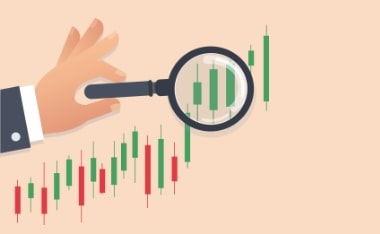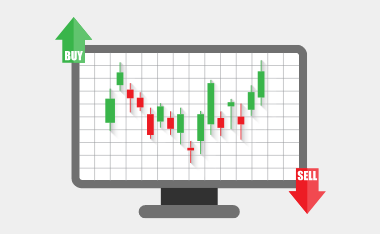Inside the Most Common Forex Scams Targeting New Aussie Traders

Understanding the Risks Facing New Traders in Australia
As more Australians explore online trading, the foreign exchange (forex) market’s appeal grows.
With 24-hour global markets, mobile apps, and low deposits, starting is easier than ever.
Yet, this ease brings significant risks, mainly for new traders.
Forex scams targeting Aussie beginners in 2025 are on the rise. They masquerade as legitimate opportunities.
Scams include misleading signal groups, fake mentorship, and fraudulent brokers. Each aims to exploit the desire for quick profits.
For new Aussie forex traders, the key to safety is spotting scams early. Building a strategy based on discipline, education, and scepticism is essential.
Signal Groups That Sell Hope, Not Strategy
Paid signal groups are a common trap for new traders.
They’re heavily promoted on social media, promising quick profits.
The reality is often far less glamorous.
These groups rarely have professional backing. They often use recycled content and fail to adapt to market changes.
They sell the illusion of profitability without accountability.
ASIC in Australia has warned about unlicensed social media influencers.
Yet, these groups continue to target younger Aussies seeking shortcuts.
Many charge recurring fees for vague strategies and emotional hype.
Some even delete losing trades, highlighting only the wins.
This creates a false sense of confidence for new traders.
Mentorship Traps and Fake Gurus
The rise of self-proclaimed forex mentors affects Aussie new traders.
These gurus flaunt luxury lifestyles on social media, promising mentorship and easy profits.
Many offer little more than recycled content and vague promises.
When results don’t materialize, they blame the student, saying they lacked discipline.
Yet, not all mentors are scammers.
Experienced coaches genuinely aim to help traders develop skills.
Only about 10% of retail traders make consistent profits.
Some negative reviews may reflect this imbalance, not a failing of the coach.
When seeking a mentor, new traders must find the right fit.
Set realistic expectations, research, ask questions, and ensure the mentor’s style matches your needs.
Quality education isn’t always cheap.
Choosing the cheapest option based on social proof can overlook substance and value.
A good mentor offers clear answers, structure, and accountability.
But success in trading requires effort, honesty, and a commitment to learning.
Trading Bots and Auto-Trading Scams
In today’s fast-paced world, automation is highly appealing, even to part-time traders.
Forex scams involving trading bots and automated platforms have seen a significant rise in 2025.
These bots are touted as AI-driven tools that can analyse market data faster than any human. They claim to execute perfect trades around the clock.
The promise is simple: set it and forget it, and watch your money grow.
But the reality is often far from that.
Many of these bots are based on flawed algorithms or backtested data that fails in live conditions.
In the worst cases, they don’t trade at all. Instead, they act as fronts for investment scams where money is collected and then never seen again.
Unsuspecting traders are lured into depositing funds to connect the bot to their brokerage account—only to lose it all within days.
This issue has been a major problem in Australia’s retail market. New traders assume that because a bot is plugged into MetaTrader or comes with charts, it must be legitimate.
In truth, very few bots can outperform manual trading or a disciplined, rules-based plan.
Traders should treat any bot claiming to deliver guaranteed profits as a major red flag.
Clone Brokers and Offshore Traps
Another threat comes in the form of clone brokers.
These are fraudulent websites that impersonate legitimate ASIC-regulated firms. They copy their branding, licence numbers, and even staff bios.
They use search engine ads and social media promotions to appear legitimate.
Once a trader signs up, they’re taken to a fake dashboard that mimics the appearance of a real broker’s interface—but behind the scenes, no trades are being placed.
Traders may be encouraged to deposit more and more money, often promised bonuses or returns.
When they try to withdraw, the platform either stalls or demands excessive verification. In many cases, the trader is locked out completely, and the money disappears.
The way to avoid these scams is to verify a broker’s licence directly on ASIC’s MoneySmart register. Avoid platforms based in offshore jurisdictions. Never trust platforms that pressure you into fast deposits.
Any broker that offers outrageous returns or promises risk-free profits is almost certain to be a scam.
How It Affects Traders in the Major Currency Pairs
These scams don’t just harm people chasing exotic strategies or altcoin forex schemes.
Even traders who focus on the major currency pairs, such as AUD/USD, EUR/USD, and GBP/USD, can fall victim—particular in the areas of signal groups and mentorships.
These scammers often showcase trades involving the majors to build credibility. They know that these pairs are where new Aussie traders usually begin.
Scams targeting major currency traders often play on macroeconomic narratives.
For instance, someone might pitch a high-conviction trade in AUD/USD based on RBA rate cuts. They claim insider access to interbank information or central bank strategy.
For the average retail trader, this sounds believable, given the volatility in Australian interest rate expectations.
With major pairs already subject to institutional flows, unexpected volatility, and news-driven moves, adding a layer of misinformation or scam influence can lead to poor decisions and unnecessary risk.
Retail traders need to stick to trusted sources and avoid any claim that sounds too good to be true.
The Cost of Time-Wasting and Psychological Damage
Forex scams don’t always steal your money directly.
Some just waste your time, hindering your progress.
Following poor signals, ineffective education, or get-rich-quick schemes delays your growth.
This often leads to overtrading, frustration, and burnout.
In 2025, economic uncertainty and inflation pressures weigh heavily.
The mental load of trading without support is immense.
Time spent on fake gurus or gimmicky tools could be better spent on learning.
Building a trading knowledge foundation, testing strategies, and learning risk management are key.
New Australian traders must focus on long-term success, not short-term gains.
This mindset shift separates consistent traders from those who give up.
What Traders Can Do to Protect Themselves
Avoiding scams begins with awareness.
Aussie traders should be wary of offers promising easy or guaranteed returns.
Choose regulated brokers, ask for proof of results, and don’t rely on screenshots.
Verify identities and ensure educators or mentors are qualified and transparent.
Using ASIC-regulated platforms and choosing Australian brokers with transparency and support is essential.
Taking a structured approach, whether through coaching, guided programs like LIFT, or self-study, helps avoid shortcuts.
Being part of trading communities that value objectivity, honesty, and long-term growth is important.
A good community will challenge you to think critically, improve discipline, and focus on the right metrics.
Conclusion: Education and Caution are Your Best Defence
Forex trading can be rewarding but requires clarity and care.
In 2025, with growing opportunities and risks, scammers prey on impatience and inexperience.
By slowing down, learning, and using regulated Australian brokers and structured programs, traders can avoid common pitfalls.
Building trust takes time, with yourself and your strategy.
Focus on developing your edge and measuring progress correctly.
The best trades are honest, clear, and based on sound thinking.
This is how professional traders operate, leading to long-term success for more Australians.
Disclaimer
The information, strategies, techniques and approaches discussed in this article are for general information purposes only. The Trading Coach International does not necessarily use, promote nor recommend any strategies discussed in this article. The information in this article may not be suitable for your personal financial circumstances and you should seek independent qualified financial advice before implementing any financial strategy. The Trading Coach International is not a financial advisor and does not have AFS registration.




















